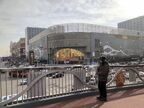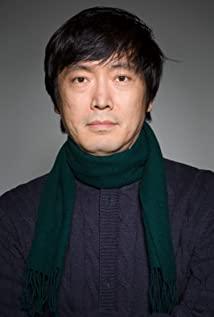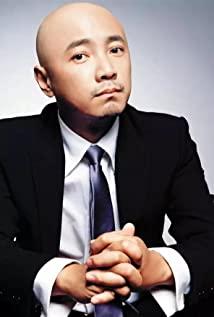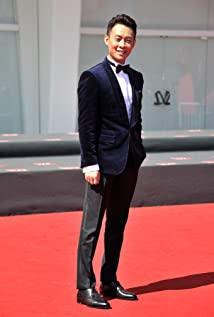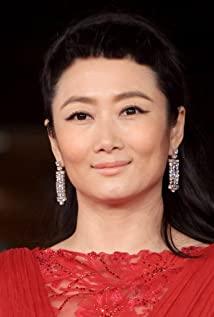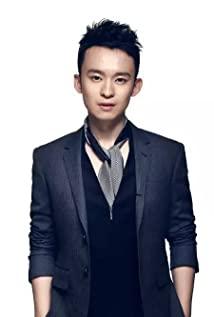Qiao Qiao - Female Prisoner
In 2001, Qiaoqiao asked Binbin to go to Xinjiang with him. Binbin only said that the future projects in Datong will be ours. In 2017, Binbin was brought to the huge stadium construction site by Qiaoqiao. Hearing Qiaoqiao say, I am righteous and ruthless towards you.
Qiaoqiao changed from a sister-in-law to a prisoner, an abandoned wife after being released from prison, and finally became a Qiaojie. From being dependent to being independent, she gained money and power, as well as a place in the arena. But the clever expression reminded the audience that she was clearly using all the strength she had accumulated over the years to suppress the emotional outburst. She was still there, unable to escape the cage.
At the end of the film, Qiaoqiao's prisoner status is on the table. When Binbin left, Qiaoqiao threw the door open in shock and anger, as if in a trance looking for traces of Binbin's departure. The camera turned to the monitor, and Qiaoqiao returned to the room. In the camera, her face was blurred, leaning against the wall and motionless. The movie ends here, and it seems that the story of Qiao Qiao ends here, in the small frame of the monitor, in the cage from which she can't escape when she wanders around. This seems to be a unique life experience for women. After trying their best to break through, there seems to be no visible enemy in front of them, but they still can't get out. It seems to be a cage nested in the emotional structure of women, while being brave, questioning the price of this bravery, gaining the power of control, and questioning the possible harm that such control may bring. Clearly, this dilemma is not, or at least not just, constructed from a lack of social capital. Therefore, the statement that "rich and handsome is just" does not hold. Material, appearance, and knowledge cannot resolve this predicament. It is a psychological structure that accompanies women's growth, and both proletarian and prolific women are in this predicament, and the "decent posture" in the current popular discourse does not exempt well-educated prosperous women. Otherwise Woolf, who has "a room of one's own", would not be repeating the old female tragedy.
A society with a male psychological structure as its standard structure is the chain on this cage. This dominant structure has the power of naming, which demands reflection and withdrawal from all disparate temperaments. Jianghu is a place where this structure is particularly prominent. As a person in the rivers and lakes, Qiaoqiao needs loyalty, determination, and standing up, and needs to play with a teapot when Binbin was bullied by the old horse. Qiao Qiao lived as a son and daughter of the rivers and lakes, but the women in the rivers and lakes only lived as "father, first husband". Coincidentally, this is also the case with the wife in "Master" and Gong Er in "The Grandmaster". I have no intention to criticize male directors for their imagination of women, but this kind of imagination is really only from a male perspective. Talking about her affectionate and unrighteous Qiaoqiao, she told us with several outbursts of emotions that she was suffering, but this suffering was not to live a good life in the arena, but because whether it was 18 years ago or 18 years later, She still stayed in the small and dark chess and card entertainment room at the beginning of the story, unable to get out. Only this time, she was not the sister-in-law who swayed into the crowd of men, but the Qiao sister who was in control of the whole situation. But in fact, she failed to really become Binbin. In the face of Qiaoqiao's continuous pursuit, Binbin's abandonment was unbelievably firm. It seemed that once he was convinced that he should be ruthless and that he would make a comeback, he would no longer question and hesitate. For more than ten years, Qiaoqiao can have the same style as Binbin, but after all, he cannot have the same self-determination as Binbin. That is certainty, but also devastating blindness and paranoia. Qiao Qiao pretended to have this confidence and told everyone that he was ruthless and only righteous. She had to resist the real experience of being a woman—clearly affectionate and clearly hateful. She is still stuck in place, this is her suffering, no matter how she lives on the rivers and lakes, she can't get rid of it.
Qiao Qiao meets most of the men along the way, and the possibility of escaping from the predicament is definitely not in these men, but it is not like the UFO in the film imagined, it lies in her "complete grasp of herself in loneliness", if this grasp is The truth is, Qiao Qiao will not be the drooping head and face in the ending, and the face is blurred. Jia Zhangke realized that it was impossible for Qiaoqiao to gain real freedom by transforming into a Jianghu woman and possessing money and power. But he may have overlooked another possibility consciously or unconsciously. Qiao Qiao seems to be motherless, and there are only two women in the movie universe who have really had an intersection with her, one to trick her into stealing her, and one to announce to her that your boyfriend is now my boyfriend. Qiaoqiao's life experience has never had the empathy of being a woman. She only has a powerless father and a Binbin who abandoned her. At first, the latter was her reliance and belonging, making up for her father's absence; later, the former Binbin was a template for her growth. As a woman, Qiao Qiao has never been able to share or understand her plight. He finally left Qiaoqiao in an unsolved picture frame. This lonely figure not only tells the vicissitudes of life, but also reminds the possibility of another narrative. A person may be destined to have no way to escape, but when the story No longer limited to stealing and being stolen, my boyfriend is still your boyfriend, the relationship between women is no longer single and hostile, but becomes a real and organic connection and interaction, then the self-affirmation of women as a whole may be is an exit.
Jianghu-Reconstruction of Meaning
Jia Zhangke's understanding of Qiaoqiao is of course not from a female perspective, but it cannot be said that there is a big problem with his understanding. He has placed Qiaoqiao in his entire family of film characters to portray and deal with. The reason why these two perspectives lead to the same understanding of characters is because the essential logic of these two perspectives is the same, which is to find the faces and hearts that have been exiled and denied by the mainstream in the era.
I first watched Jia Zhangke's film on the platform. The resources I found on the Internet were extremely low-definition, and everyone's face was blurred, so that when I watched other films later, I couldn't recognize Wang Hongwei and Zhao Tao at all. But the impression the platform left on my mind was intuitive, bicycles, padded jackets, city walls, and people with blurred faces. These fragments, which I thought I had forgotten for a long time, were awakened by the blurred woman on the monitor. Suddenly, I felt that this was what Jia Zhangke had been trying to paint. Those music, dances, faces, and performances and circuses in the county town that have been reused and even completely symbolized, these may be the reproduction of Jia Zhangke's real daily memory, but the role in this film is only decorative. The spectacle, wave after wave, engulfs the audience's attention. In any case, it is impossible to reveal the sincere confusion like Xiao Wu and Ren Xiaoyao. Jia Zhangke is no longer like that Jia Zhangke, he is now determined and confident, and wants to evoke a world of his own. What really permeates and survives is the blurred person trapped in the frame. Qiaoqiao leaned against the wall and was silent, Xiaowu who was watched on the street, and Xiaoji who sang in the police station. Zhao Tao is not a chivalrous woman in all corners of the world. There never seems to be such a dashing and transparent chivalrous man in Jia Zhangke’s images, because chivalrous men are detached from the existing process of the times and social structure, but Jia Zhangke’s characters all live in the most difficult times of the times and society. in the deep crevice.
Jia Zhangke's treatment of the background of the times and the families of the characters is understated. The audience may be most impressed by the rumor that Datong workers will be collectively relocated to Xinjiang to dig for oil, which has become an element of the film's absurd tone. But in fact, the background of the times behind this rumor is a necessary condition for the film and its characters to be possible. In the late 1990s, due to the reform of state-owned enterprises, a large number of workers were laid off and became self-sufficient. The way of life is on the rivers and lakes.
When talking about the future, Binbin said that he is a "person from the mechanical and electrical power plant" and Qiaoqiao is a "person from the Mining Bureau". This expression does not simply indicate that they have worked in these units, but refers to their whole life world. A detail in the film is that when Qiaoqiao went to the mine to find his father, he passed a room, and a group of old workers sitting in the room came to greet Qiaoqiao. Such a hurried chat hints at a past world where a unit is not only a production space, but also a living space shared by people. When I was very young, I would take a silver aluminum lunch box and follow my dad to the cafeteria to eat. Along the way, my dad would greet many colleagues and ask me to call me uncle and auntie. This blurry image in my mind overlapped with the scene when I passed by the house full of old workers, and I suddenly remembered that I used to be a child in a military compound, who ate with me in the canteen, Those who play downstairs and go to school are also "children in the courtyard". When my parents have no time, the uncles and aunts in the courtyard will pick me up from school and take me to my parents. As long as it is the people in the courtyard, it seems that they can be trusted. That army compound almost constitutes my entire world. Later, my dad changed jobs, from one compound to another.
However, Qiaoqiao and Binbin have no other place to go, reform and lay off, which means that the community that originally provided them with a whole set of social meaning suddenly collapsed, and they were suddenly exiled to a space of unknown meaning without specific Only by destroying the existing rules or formulating a new set of rules to provide new meanings and norms is Jianghu. Jianghu is not out of thin air, or as Jia Zhangke said, our present is not without history and ancients. Jianghu was born from the disintegration of the previous social order, from the survival attempts of people who were excluded from the new social order, born in In the spontaneous organizational efforts of the "abandoned people", since they could not find a way to return to the mainstream structure, this effort can only try to construct an order that is different from the mainstream. On the one hand, this order is antagonistic, on the other hand It is also auxiliary, which prevents the mainstream society from being destroyed and destroyed by chaotic and unorganized forces. Therefore, while confronting and suppressing this alternative structure, the mainstream is constantly cooperating and compromising with it, in order to maintain a relative stable overall state. After Brother Er Yong died, the police walked into the widow's house as an old friend, mourned and discussed countermeasures with the big gangsters in the house. This scene is not only cooperative, but also full of friendship. This kind of "cooperation between police and criminals" "The pattern is clearly part of the local order of normalcy.
Abandoned people in mainstream society, people who are caught in the social structure, how to survive and how to obtain meaning, this is Jia Zhangke's consistent concern, but he has always provided a portrait rather than a way out, so these figures are in his images. It's all blurry with nowhere to go.
Us - Anxiety of Exile
And these characters are actually not far off. In the contemporary Chinese context, the disintegration of the unit system brings about the double disintegration of working space and living space. Today, work is precarious, people are fluid, and personal life and work exist in very different times and places. Most of the urban public spaces are functional. We take the subway silently, watch the stage play silently, and run silently in the park. We rarely see the real public living space where people can connect with each other. These spaces no longer carry the meaning of social integration. We have grown up in such an atomized environment, and the world of the mining bureau's clever life is an unfamiliar illusion to us, and the nuclear family is the basic organization of our existence. We are more vulnerable, we don’t need the wholeness of society to collapse, and daily life brings us enough anxiety, anxiety about buying a house, anxiety about marriage, which is actually the anxiety of being banished from the mainstream, it is Anxiety about not being able to place oneself in a defined social organization as early as possible. The acceptance of the discourse system of the law of the jungle under the logic of the market has convinced us that society outside the nuclear family cannot afford to be trusted. Without real estate, no savings, no marriage, and no nuclear family, we would have nowhere to put ourselves, and we would become the blurred faces in Jia Zhangke's lens, Qiaoqiao and Binbin. The alienation and isolation among women mentioned above is one aspect of this overall social isolation. It is not a special issue for women, but an overall issue for contemporary society.
View more about Ash Is Purest White reviews




